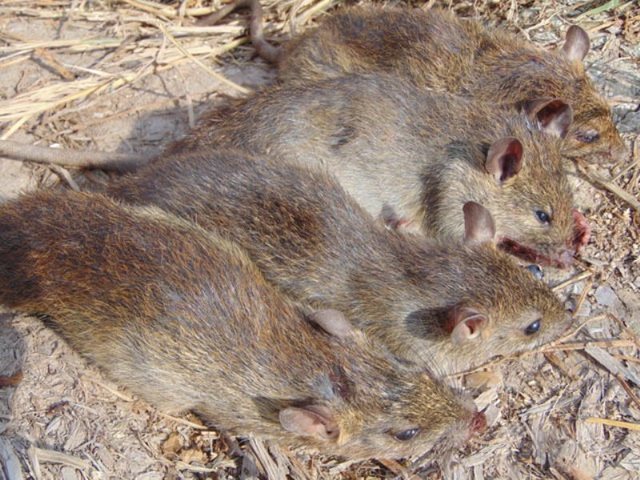 Society
Society


|
| There are high proportions of positive samples among field rats destined for human consumption, according to the study. — Photo nhandan.com.vn |
HÀ NỘI — Samples taken from animals in the wild destined for human consumption contain a high proportion of coronavirus, a new study has revealed.
Vietnamese and foreign scientists tested animals at 70 sites across Việt Nam.
Results, which were recently published by bioRxiv, showed the proportion of positive cases significantly increases as animals travel from traders to large markets and to restaurants.
It was jointly researched by a team from Wildlife Conservation Society (WCS), the Department of Animal Health of the Vietnamese Ministry of Agriculture and Rural Development, Việt Nam National University of Agriculture, EcoHealth Alliance, and One Health Institute of the University of California, Davis.
The team found high proportions of positive samples among field rats destined for human consumption. These significantly increased along the supply chain from traders (21 per cent), to large markets (32 per cent) and to restaurants (56 per cent). Coronaviruses were detected on two-thirds of the surveyed wildlife farms, and six per cent of rodents raised on the farms were positive.
Amanda Fine, WCS Health Programme Associate Director in Asia and a co-author of the study said: “Wildlife supply chains, and the conditions the animals experience while in the supply chain, appear to greatly amplify the prevalence of coronaviruses.
“We documented exposure of rodents on wildlife farms to both bat and bird coronaviruses.
“These high prevalence rates and diversity of coronaviruses, added to the species mixing we see in the wildlife trade, creates more opportunities for coronavirus recombination events as well as spillover.”
Wildlife in the trade supply chain is often under stress and confined at high densities with other animals from multiple sources which likely results in increased shedding of coronaviruses. The authors forewarn of the potential risk of viral spillover into people through the wildlife trade.
The authors indicate that stress and poor nutrition likely contribute to decreasing animal immune functions resulting in increased shedding and amplification of coronaviruses along the supply chain.
Samples collected at 70 sites in Việt Nam detected six distinct taxonomic units of known coronaviruses.
Although there is no current evidence to suggest these particular viruses were a human-health threat, the laboratory techniques used in the study can be utilised to detect important emerging or unknown viruses in humans, wildlife and livestock in the future, the researchers said.
To minimise the public health risks of viral disease emergence from wildlife and to safeguard livestock-based production systems, the authors recommend precautionary measures that restrict the killing, commercial breeding, transport, buying, selling, storage, processing and consuming of wild animals.
The world must increase vigilance through building and improving detection capacity, actively conducting surveillance to detect and characterise coronaviruses in humans, wildlife and livestock, and to inform human behaviours in order to reduce zoonotic viral transmission to humans, researchers said.
According to WCS, this study represents an important demonstration of capacity and a significant contribution from Việt Nam to the field, laboratory, and scientific approaches critical to understanding and addressing zoonotic disease threats. — VNS




